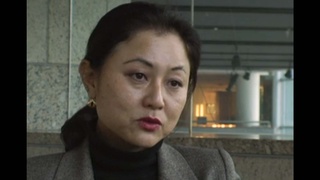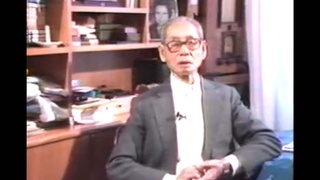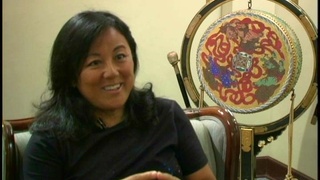Interviews
Visit to assembly centers by E. Stanley Jones
The thing I remember the most in assembly center was a guy—he was a very famous minister, E. Stanley Jones. He was America’s top evangelist, And he said something that stayed with me the rest of my life, I think. And, in fact, I would tell my Sunday school kids this.
He said, “It’s not so important what happens to you as what you do after it happens.” And when he came there this week, he knew that all of us had just lost our homes, our jobs. We were ousted from our home town, and that we were all really, like, feeling very bad. And so, he tried to, I guess, lift us up to say that “It isn’t so important what happens to you, but what you do after it happened.” And I really thought it made sense that we gotta, we gotta make the camp as nice as a camp for everybody. And we should all help each other out, and stuff.
Date: June 16, 2003
Location: California, US
Interviewer: Karen Ishizuka, Akira Boch
Contributed by: Watase Media Arts Center, Japanese American National Museum.
Explore More Videos

On the Impact of the Camp Experience
(b. 1942) The first Asian American woman judge

A memorable CWRIC testimony of an unjust situation
Judge, only Japanese American to serve on CWRIC.

Being called out of Reserves
(b. 1921) Nisei veteran who served in the occupation of Japan

Fort Snelling
(b. 1921) Nisei veteran who served in the occupation of Japan

Traveling from Manila to Tokyo
(b. 1921) Nisei veteran who served in the occupation of Japan

Camp stories impact on her career
Sansei judge on the Superior Court of Los Angeles County in California

Concentration camp from a Japanese mother’s point of view (Japanese)
Shin-Issei from Gifu. Recently received U.S. citizenship

Fair Play Committee
(1916-2010) draft resister, helped form the Heart Mountain Fair Play Committee

Wanting to take a stand
(1916-2010) draft resister, helped form the Heart Mountain Fair Play Committee

Ostracized by the camp newspapers
(1916-2010) draft resister, helped form the Heart Mountain Fair Play Committee

Arrested in camp for trying to leave
(1916-2010) draft resister, helped form the Heart Mountain Fair Play Committee

Donating clothes to the Japanese interns (Japanese)
(1900–1996) The mother of Nikkei Brazilian immigration

Interrogation by police (Japanese)
(1900–1996) The mother of Nikkei Brazilian immigration

Makegumi - Movement to regognize the defeat of Japan (Japanese)
A central figure for the “Makegumi” (defeatists)

Necessary apologies (Spanish)
(b. 1962) Peruvian Poet, Okinawan descendant
